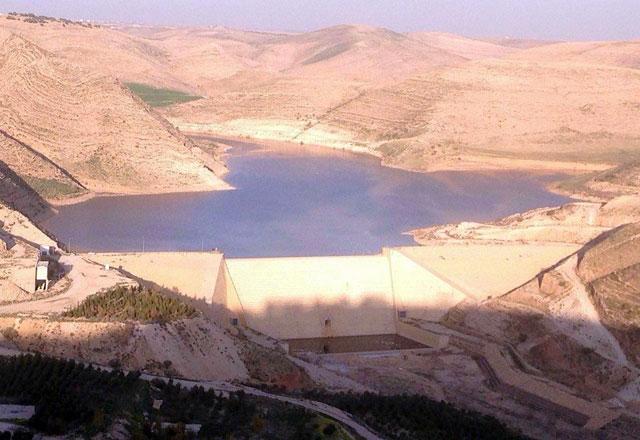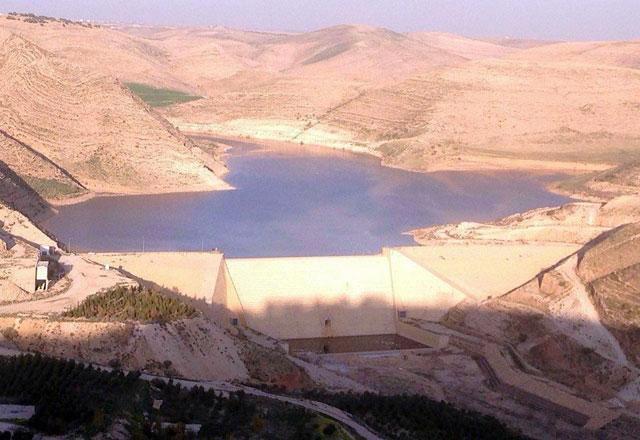You are here
Work under way to raise walls of Waleh Dam
By Hana Namrouqa - Dec 31,2016 - Last updated at Dec 31,2016
AMMAN — Construction work on a project to raise the walls of the Waleh Dam to more than double its capacity has commenced, a government official said on Saturday.
The project will raise the storage capacity of the dam from the current 9.6 million cubic metres (mcm) to 25mcm, the official at the Ministry of Water and Irrigation said, expecting work to end in less than two years.
The walls of the Waleh Dam will be raised by 15 metres to allow the storage of additional rainwater, the official said, underscoring that millions of cubic metres of water are wasted in uncollected runoff almost every winter when the dam reaches its full capacity and then overflows.
Raising the walls of the dam will cost JD27.9 million, according to the government official, who said that the project is implemented under the badia rehabilitation programme, which is funded by the environmental compensation granted to Jordan by the United Nations Compensation Committee (UNCC).
The additional water that will be stored at the dam will be used for providing Madaba Governorate, 30km southwest of Amman, with more drinking water, according to the ministry.
Construction of the dam, located in Madaba, began in 1999 and it became operational in 2002 at a cost of JD24 million, 80 per cent of which was funded by a loan from the Arab Fund for Economic and Social Development, while the remainder was paid for by the Treasury.
The terrestrial ecosystems of the Jordanian badia were severely damaged following the 1991 Gulf War, when masses of refugees and their livestock — estimated at 1.8 million sheep, goats and camels — crossed the border and stayed in the country for several months.
In 2005, the UNCC decided to grant Jordan $160.5 million in compensation for damage incurred by the Kingdom’s water, environment, wildlife, marine life and agriculture sectors in the aftermath of the first Gulf War, in addition to $1.4 million to tackle the salinity of the country’s underground water basins.
The funds are being used to support projects that focus on rehabilitating the badia’s ecosystem to its former status, and tackling the negative consequences of random grazing and wildlife deterioration.
There are currently 10 major dams in Jordan with a capacity of 325mcm, as well as more than 143 large ponds to collect floodwater in the desert and over 25 sand dams, according to the ministry.
Plans are under way to raise the capacity of the Kingdom’s dams by 25 per cent to reach 400mcm by the year 2025, according to the Water Ministry, which said that this would be achieved by building more dams and raising the walls of existing ones, including the Waleh Dam.
Related Articles
AMMAN — The government will float a tender next week to raise the walls of the Waleh Dam to more than double its capacity, government offici
AMMAN — Raising the walls of Madaba Governorate’s Waleh Dam began on Wednesday, under a project aimed at restoring the original environmenta
AMMAN — Construction is under way to establish 23 sand ponds across the desert before the onset of the next wet season, an official said on













